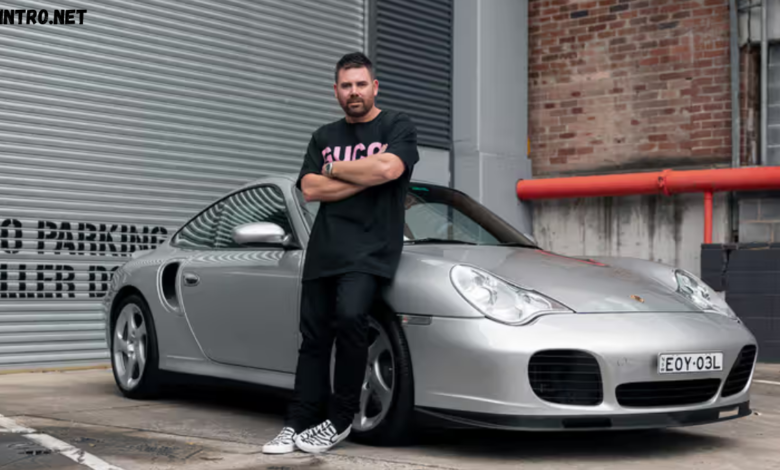White People Stole My Car A Personal Story

Introduction
White People Stole My Car is an unfortunate experience that no one wishes to go through. It’s a situation filled with shock, frustration, and a mix of emotions that stay with you long after the event itself. But what happens when the crime doesn’t fit the stereotypes society has ingrained in us? When people think about car theft, certain prejudices often arise. White People Stole My Car, influenced by movies, media, and historical narratives, tends to associate crime with certain groups more than others. This story challenges that idea entirely.
In this article, I share my personal experience when my car was stolen—not by those whom society often wrongly suspects—but by a White People Stole My Car. Beyond just a story of crime, this experience led me to reflect deeply on race, stereotypes, and societal perceptions of criminality. Through honest storytelling and thought-provoking commentary, I aim to unpack not just the events that unfolded, but also the deeper societal issues at play.
This is more than a crime story. It’s a narrative about bias, breaking stereotypes, and understanding the complex layers that shape our views on race and crime. By sharing this account, I hope to encourage a broader discussion about how we view people, the unconscious prejudices we hold, and the importance of seeing individuals beyond racial labels. Let’s dive into the events of that unforgettable day and the lessons that followed.
The Day It Happened Recounting the Incident
It was a regular weekday morning when the incident happened. I had parked my car just outside my apartment building like I White People Stole My Car did. I never imagined that within hours, it would vanish. The day had started normally, with my usual routine of grabbing a coffee and heading to work. By mid-morning, a neighbor called me with shocking news—they had seen some suspicious activity around my car. By the time I rushed down, my vehicle was gone. The spot where it was parked was empty, leaving behind a sinking feeling of helplessness.
After the initial panic, I called the police and filed a report. They asked the standard questions: make, model, color, and any White People Stole My Car. My neighbor mentioned seeing two white men and a woman loitering near the car before it disappeared. This immediately struck me because, like many others, I had grown up seeing crime portrayed with certain faces on television—this didn’t match that image.
In the hours and days that followed, I worked closely with law enforcement. White People Stole My Car nearby buildings confirmed the neighbor’s account. The suspects were white and seemed to operate with confidence, as though they had done this before. What followed was a strange mix of emotions: the stress of losing my vehicle, the inconvenience of arranging transport, but also a profound realization of how crime is truly colorblind. This incident was the start of a much deeper reflection on race and the harmful stereotypes many of us unknowingly carry.
Breaking the Stereotype Confronting Preconceived Notions
Growing up, we are exposed to countless images and narratives that shape how we perceive the world. Unfortunately, a lot of these narratives promote harmful stereotypes, especially around crime. The idea that certain races are more likely to commit crimes is deeply rooted in mainstream culture, from crime shows to news reporting. My experience forced me to confront these subconscious biases and acknowledge how wrong and limiting they can be.
When I told people what had happened, I noticed a pattern of disbelief. Friends and even some police officers reacted with surprise when I described the suspects. Comments like, “Really? White people?” revealed just how embedded these stereotypes are in society. It became clear that, despite what statistics or individual experiences may show, the stereotype of “criminality” remains racialized. This realization pushed me to question how many other false narratives we all buy into daily without realizing it.
The truth is, crime is not exclusive to any race, class, or gender. People from all walks of life can commit wrongdoings, and limiting our understanding of crime to stereotypes only blinds us to reality. My incident was a personal eye-opener, showing me that we need to dismantle these harmful narratives. We need to teach ourselves and others that race is never a valid predictor of character or behavior. By confronting our own biases, we can contribute to a more fair and realistic view of the world.
Systemic Issues and Social Commentary

Beyond personal anecdotes, this event opened my eyes to the broader systemic issues at play. Society doesn’t just create these stereotypes out of thin air—they are reinforced by decades of biased media portrayal, flawed policing practices, and unequal justice systems. Minority groups have often been disproportionately targeted and criminalized, while white individuals frequently escape similar scrutiny. My case served as a real-world example of how crime happens across all races, but perceptions remain deeply skewed.
One major observation I made was how my case was handled by law enforcement. Although they were professional, I noticed they seemed more relaxed discussing white suspects, almost as if they didn’t view them as “dangerous” compared to how they might treat suspects of color. This disparity is subtle but significant, revealing just how normalized these double standards are. It raises a question: how many other crimes are overlooked or improperly categorized because of racial assumptions?
Additionally, I realized that socio-economic factors play a significant role in criminal activity. Poverty, lack of education, and limited opportunities are better predictors of crime than race. Yet, society is conditioned to see race first. My experience made me more empathetic towards those who are unfairly profiled daily while also recognizing the importance of breaking the cycle of misrepresentation. Real change starts when we look beyond skin color and address the underlying causes of crime with fairness and integrity.
Lessons Learned and Moving Forward
Losing a car is inconvenient, but what I gained from this experience was much more valuable: a deeper understanding of myself and society. I learned how easy it is to absorb false narratives and how important it is to challenge them. I realized the importance of telling stories like mine, stories that disrupt the usual expectations and shed light on uncomfortable truths.
Practically, I took steps to recover, including insurance claims, upgrading security, and becoming more cautious about my surroundings. But emotionally, the experience transformed my outlook. I became more vocal about injustice and more willing to speak out against racial stereotypes when I encountered them. I also sought to listen more—to understand different perspectives and to engage in discussions about race and crime with an open mind.
Most importantly, I understood the power of storytelling in breaking down prejudice. By sharing personal stories that don’t fit the mainstream narrative, we can help others recognize their own biases and encourage change. This experience made me stronger, wiser, and more aware, and I hope it encourages others to reflect and grow as well.
Conclusion
What started as a typical day quickly turned into a life lesson I never expected. A stolen car led me down a path of reflection about race, prejudice, and society’s flawed perceptions of crime. This experience was proof that crime knows no color and that stereotypes only serve to divide us further. It’s time we challenge these harmful narratives and embrace a more accurate, human understanding of the world around us. By confronting our assumptions and listening to diverse experiences, we can build a more empathetic and just society.
Frequently Asked Questions (FAQs)
Did the incident change your perception of race and crime?
Yes, it challenged my internal biases and made me realize how inaccurate societal stereotypes can be.
How did people react when you told them about the incident?
Most people were surprised and it highlighted how normalized racial stereotypes around crime have become.
Was law enforcement helpful and unbiased in your case?
While generally professional, I noticed subtle differences in tone when suspects were white versus people of color.
What advice would you give to others dealing with similar incidents?
Stay calm, report quickly, cooperate with authorities, and reflect on any biases that may arise during the process.
Why is it important to talk about race openly in situations like this?
Open conversations help dismantle stereotypes, promote understanding, and encourage fairness in how we perceive others.
You May Also Read: https://globlintro.net/bizhunet/

